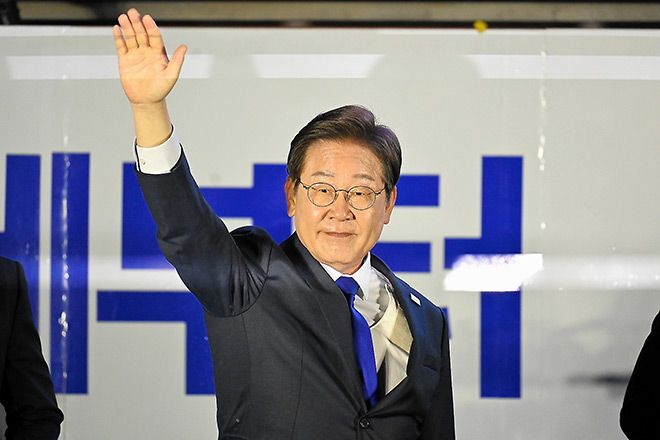Japanese government officials have expressed both optimism and caution over the future of bilateral relations under South Korea’s first progressive president in about three years.
Lee Jae-myung, leader of the Democratic Party of Korea, was inaugurated as South Korean president on June 4 following the election the previous day.
Prime Minister Shigeru Ishiba expressed congratulations on Lee’s election and said he wants to meet with the new leader as soon as possible.
“I want to work with Lee to further energize Japan-South Korea cooperation, as well as three-way cooperation involving the United States, on the occasion of the 60th anniversary (of normalizing bilateral diplomatic relations this year),” Ishiba told reporters on June 4.
Lee, 60, has sharply criticized the previous conservative administration of Yoon Suk-yeol over its “conciliatory” approach toward Japan.
In 2023, Lee went on a fast to oppose Japan’s release of treated radioactive water from the crippled Fukushima No. 1 nuclear power plant into the ocean.
However, a senior Foreign Ministry official in Tokyo said South Korea needs to maintain cooperative relations with Japan, citing North Korea’s deepening military ties with Russia and the Trump administration’s uncertain diplomatic policies.
“I do not think that South Korea wants to see its relations with Japan break down at this point in time,” the official said.
Under the Yoon administration, South Korea worked with Japan and the United States to “institutionalize” the three-way cooperative framework.
In November, Yoon, Ishiba and U.S. President Joe Biden agreed to establish the Trilateral Coordinating Secretariat to insulate their cooperative relations from future changes in governments.
South Korea’s first Indo-Pacific Strategy, formulated under the Yoon administration, differs from a “balanced diplomacy” that also gives consideration to China, with which South Korea has a close economic relationship.
In contrast, Lee pledged to build stable relations with China and restore communication channels with North Korea during the presidential election campaign.
A senior Foreign Ministry official in Tokyo expressed concerns about the direction of South Korean foreign policy under the Lee administration.
“If South Korea moves closer to North Korea and China, its stance toward Japan and the United States is bound to change,” the official said.
Lee has emphasized that he will adhere to “principles” concerning history issues with Japan, which colonized the Korean Peninsula prior to and during World War II.
Under the administration of Moon Jae-in, another progressive president, Japan-South Korea relations sank to what were said to be their worst levels in the postwar years.
Past South Korean presidents took a harsh stance against Japan to shore up public support for their administrations.
However, many government officials in Tokyo said the political tactics will not appeal to South Koreans anymore because mutual public sentiments have been favorable in the two neighbors.
During the campaign, Lee described Japan as an “important partner” and said he will take a “forward-looking and future-oriented” attitude toward the country in social, cultural and economic areas.
Lee also emphasized the importance of cooperation with Japan and the United States as well as bilateral relations with Japan.
“Given the current international situation, cooperation with Japan is a demand of the times,” a person close to Lee said. “I do not think that Lee will do something to intentionally worsen relations with Japan.”
The source also said Lee is expected to maintain the broad framework of policies implemented by the Yoon administration concerning the compensation for wartime South Korean laborers in Japan.
(This article was written by Narumi Ota and Akihiko Kaise in Seoul.)


AloJapan.com